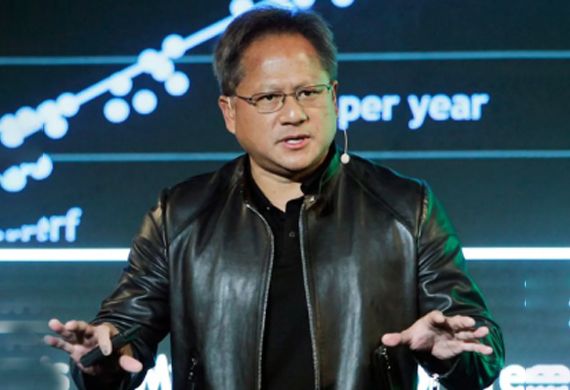Nvidia Stocks Drop as Chinese AI App Rattles Markets
By Global Leaders Insights Team | Jan 28, 2025

US tech giant Nvidia saw its value drop by more than 16% as the rising popularity of a Chinese artificial intelligence (AI) app unsettled investors in both the US and Europe.
DeepSeek, a Chinese AI chatbot reportedly developed at a fraction of the cost of its competitors, launched last week and has quickly become the most downloaded free app in the US.
Following DeepSeek's rapid rise, Nvidia, along with other tech companies involved in AI like Microsoft and Google, experienced a sharp decline in value on Monday.
In another update, DeepSeek announced on Monday that it would temporarily halt new registrations due to "large-scale malicious attacks" on its software.
The DeepSeek chatbot is reportedly developed at a fraction of the cost of its competitors, sparking concerns about the future of America's AI leadership and the scale of investments US companies are planning.
Last week, OpenAI, along with other firms, committed to investing $500 billion (£400 billion) to build AI infrastructure in the US.
In one of his first statements since returning to office, President Donald Trump referred to it as "the largest AI infrastructure project in history," emphasizing that it would help secure "the future of technology" in the US.
DeepSeek operates on the open-source DeepSeek-V3 model, which its researchers claim was trained with an investment of about $6 million—significantly less than the billions spent by competitors.
However, this claim has been contested by other experts in the AI field.
The researchers claim to use existing technology along with open-source code—software that is freely available for anyone to use, modify, or distribute.
DeepSeek's rise coincides with the US imposing restrictions on the sale of advanced chip technology used in AI to China.
To overcome the challenge of limited access to imported advanced chips, Chinese AI developers have collaborated and explored alternative approaches to the technology.
As a result, they have created AI models that demand significantly less computing power than previous versions.
This also means the costs are much lower than previously anticipated, which could potentially disrupt the industry.
After the launch of DeepSeek-R1 earlier this month, the company claimed its performance was "on par with" one of OpenAI's latest models in areas like math, coding, and natural language reasoning.
Silicon Valley venture capitalist and Trump adviser Marc Andreessen called DeepSeek-R1 "AI's Sputnik moment," drawing a parallel to the 1957 launch of the Soviet Union's satellite.
At the time, the US was seen as having been caught off-guard by its rival's technological breakthrough.
"This idea of a low-cost Chinese version hasn't necessarily been at the forefront, so it's taken the market a little bit by surprise," said Fiona Cincotta, senior market analyst at City Index.
"So, if you suddenly get this low-cost AI model, then that's going to raise concerns over the profits of rivals, particularly given the amount that they've already invested in more expensive AI infrastructure."
Vey-Sern Ling, a technology equity adviser based in Singapore, told the BBC that it could "potentially disrupt the investment outlook for the entire AI supply chain."
However, Wall Street banking giant Citi warned that while DeepSeek may pose a challenge to the leading positions of American companies like OpenAI, the challenges faced by Chinese firms could hinder their progress.
"We estimate that in an inevitably more restrictive environment, US access to more advanced chips is an advantage," analysts said in a report.
Meanwhile, DeepSeek said on Monday it had been the victim of a cyberattack.
"Due to large-scale malicious attacks on DeepSeek's services, we are temporarily limiting registrations to ensure continued service," it said in a statement.
"Existing users can log in as usual. Thanks for your understanding and support."
.jpg)



